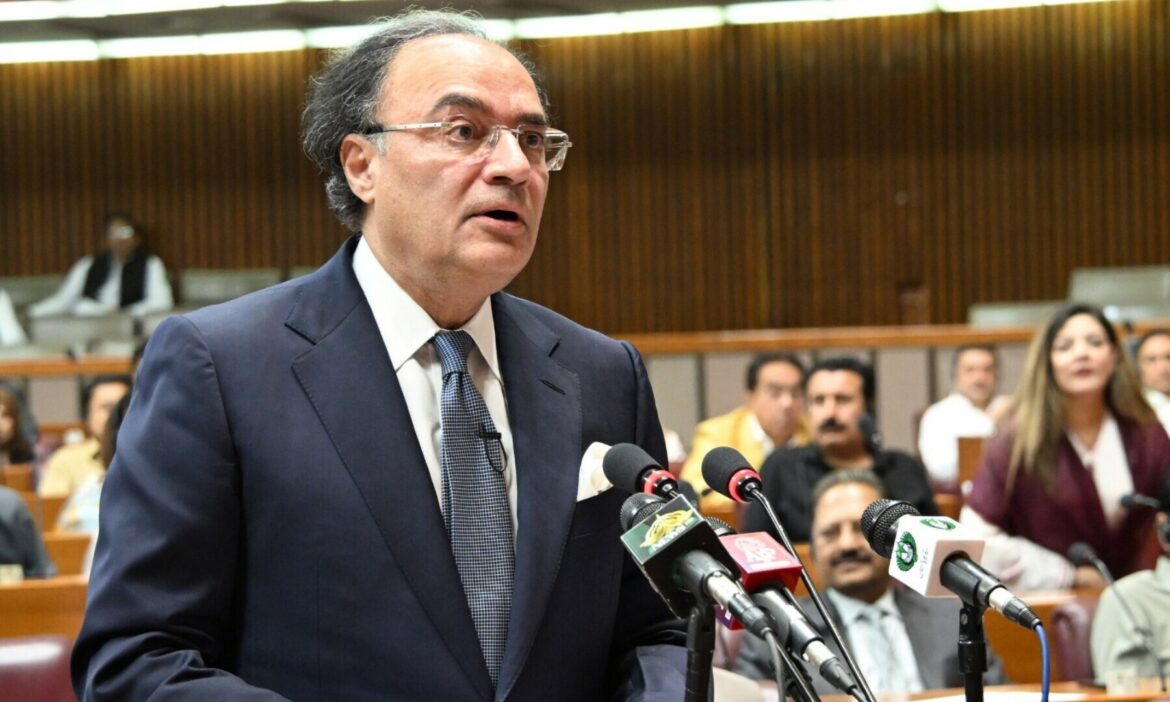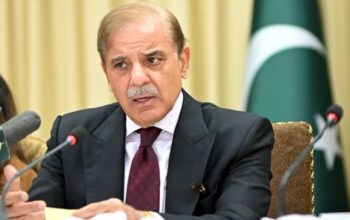By Staff Reporter
ISLAMABAD: The government has softened its tax enforcement stance while greenlighting a Rs3.951 trillion budget, striking a delicate balance between fostering compliance and fueling economic growth.
Finance Minister Muhammad Aurangzeb hailed the measures as critical to sustaining gains like rising foreign exchange reserves and falling inflation, despite opposition pushback in the National Assembly.
Tax Enforcement
Starting July 1, 2025, unregistered sales tax persons, those supplying taxable goods without registering, will face a structured enforcement process under the new Section 14AC of the Sales Tax Act.
The Federal Board of Revenue (FBR) can order banks to suspend their accounts for three working days after issuing three consecutive opportunities to register, each accompanied by a notice. If non-compliance persists, the FBR can repeat the suspension twice more, with a one-week interval between each action. This graduated mechanism, detailed in the Finance Bill, overrides conflicting laws and empowers FBR commissioners to act on credible evidence of evasion.
This shift from immediate punitive measures to a phased compliance path reflects feedback from the National Assembly and Senate Standing Committees on Finance, aiming to nudge businesses into the tax net without choking them outright.
Penalties
The bill revamps penalties to tackle tax fraud and non-compliance, with a keen eye on e-commerce. Online marketplaces, payment aggregators, and couriers failing to file mandatory monthly statements will incur a Rs300,000 fine for the first default. If the lapse continues for two consecutive months, the penalty jumps to Rs1 million per subsequent default within a 12-month period. The same fines apply if these entities enable unregistered persons to operate on their platforms, a clear signal to digital players to tighten oversight.
For tax fraud, the stakes are higher. Serious offenses, think falsifying records or orchestrating deliberate evasion, carry convictions of up to 10 years imprisonment and fines reaching Rs10 million, plus the tax amount, a 100% penalty, and default surcharges. Lesser offenses, such as unreported transactions, face up to five years in prison and fines of Rs5 million, with identical additional liabilities. These changes, softened from earlier drafts, aim to deter fraud while offering a lifeline for compliance.
Budget Approval
The National Assembly on Wednesday passed Rs3.951 trillion in demands for grants for the fiscal year ending June 30, 2026, brushing aside opposition cut motions. The Finance Ministry secured Rs3.56 trillion, the Interior Ministry Rs356.8 billion, National Food Security and Research Rs34.05 billion, and Human Rights Rs1.74 billion.
Finance Minister Aurangzeb, defending the allocations, faced a barrage of opposition critiques but stood firm. “The economy is on the right path,” he declared, pointing to a tax-to-GDP ratio of 8.8% this year, set to climb to 10.4% by June 2025. He underscored fiscal restraint, noting federal expenditures dropped 2% from last year, a dig at past extravagance: “A previous premier used to fly by helicopter to Banigala.”
Aurangzeb highlighted a Rs1 trillion Public Sector Development Programme (PSDP) allocation, which, with provincial inputs, totals Rs4 trillion. “This is sufficient if spent judiciously,” he said, citing independent surveys showing rising business activity and investor confidence.
Criticism
The government leaned on its record to parry opposition jabs. Human Rights Minister Azam Nazeer Tarar touted Pakistan’s first “A” status from international human rights bodies, crediting laws safeguarding women, children, and minorities. On the contentious issue of jailed ex-PM Imran Khan, Tarar deflected: “I lack the authority to allow Imran Khan and his wife to meet in Adiala Jail,” insisting judicial independence, a stance that inflamed PTI lawmakers further.
Interior Minister of State Talal Chaudhry detailed security upgrades, including AI-linked airport systems and enhanced passport measures to curb illegal exits, countering claims of deteriorating law and order. Agriculture Minister Rana Tanveer Hussain outlined a robust plan: stable fertilizer prices, deregulated sugarcane and wheat rates, and training 1,000 graduates in China. He confirmed cotton sowing targets were met, aiming for 10 million bales this year, bolstering an agriculture sector critical to Pakistan’s economy.
Copyright © 2021 Independent Pakistan | All rights reserved




